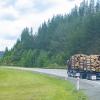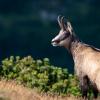Building on the research previously undertaken in the Ecosystems Services and Management and Water programs, the BNR Program fully exploits the potential for biodiversity research within integrated system analysis.
The program brings together different elements of land and aquatic ecosystems including agriculture, forests, and fisheries with water and the marine environment to inform global and regional policy assessments and provide robust science-based knowledge and foresight. The program aims to establish IIASA as an international community hub for biosphere research through innovative tool development; to lead the integration of biophysical-economic modeling with governance; to engage with stakeholders; and to facilitate community driven efforts. It provides policymaking support through core program and group research undertaken in the four BNR research groups.
BNR further engages in bilateral collaborations with other research programs and groups at the institute on key cross-cutting themes such as climate change adaptation and mitigation, the green economy, resilient food systems, transboundary governance, resource depletion and migration, and digital transformation.
Projects
Staff
News
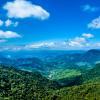
22 August 2024
Meeting ambitious restoration targets in Brazil’s Atlantic Forest
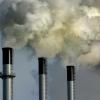
16 August 2024
Nitrogen interventions as a key to better health and robust ecosystems
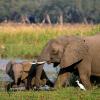
30 July 2024
Innovative solutions for sustainability in the Zambezi River Basin
Events
Potsdam Institute for Climate Impact Research (PIK) & Online
German IIASA Networking Event: "Systems analysis for a sustainable and peaceful future"
Focus

17 July 2024
Biodiversity lessons from nature
IIASA researchers Silvia Artuso and Juliette Martin reflect on a recent workshop presented at the Institute as part of the IIASA School Engagement Initiative, during which they introduced students to systems analysis and took them on an adventure to explore the amazing biodiversity of Laxenburg park.
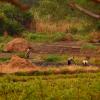
08 July 2024
Future food demand in The Gambia: can increased crop productivity and climate adaptation close the supply–demand gap?
The Gambia faces significant food availability issues due to low agricultural productivity. IIASA researchers and colleagues used the FABLE Calculator to explore actions to reduce the food supply-demand gap by 2050. The results, published in Food Security, reveal that current cropland will not meet food demand by 2050.
Publications
Escobar Lanzuela, N. , Seber, G., Skalský, R. , Wögerer, M., Jung, M., & Malina, R. (2024). Spatially-explicit land use change emissions and carbon payback times of biofuels under the carbon offsetting and reduction scheme for international aviation. Science of the Total Environment 948 e174635. 10.1016/j.scitotenv.2024.174635. Chaplin-Kramer, R., Polasky, S., Alkemade, R., Burgess, N., Cheung, W., Fetzer, I., Harfoot, M., Hertel, T., Hill, S., Andrew Johnson, J., Janse, J., José v. Jeetze, P., Kim, H., Kuiper, J., Lonsdorf, E., Leclere, D., Mulligan, M., Peterson, G., Popp, A., Roe, S., Schipper, A., Snäll, T., van Soesbergen, A., Soterroni, A., Stehfest, E., van Vuuren, D., Visconti, P., Wang-Erlandsson, L., Wells, G., & Pereira, H. (2024). Integrated modeling of nature’s role in human well-being: A research agenda. Global Environmental Change 88 e102891. 10.1016/j.gloenvcha.2024.102891. Martin, J. , Kanade, R., Bhadbhade, N., Joy, K.J., Thomas, B.K., Willaarts, B. , & Hanger-Kopp, S. (2024). Review of the food, water and biodiversity nexus in India. Environmental Science & Policy 159 e103826. 10.1016/j.envsci.2024.103826. Fridman, D. , Burek, P. , Wada, Y. , Kahil, T. , & Palazzo, A. (2024). SSP-aligned projected European water withdrawal/consumption at 5 arcminutes. 10.5281/zenodo.13379538. Zhao, F., Lange, S., Goswami, B., & Frieler, K. (2024). Frequency Bias Causes Overestimation of Climate Change Impacts on Global Flood Occurrence. Geophysical Research Letters 51 (16) e2024GL108855. 10.1029/2024GL108855. Cazalis, V., Di Marco, M., Zizka, A., Butchart, S.H.M., González-Suárez, M., Böhm, M., Bachman, S.P., Hoffmann, M., Rosati, I., De Leo, F., Jung, M., Benítez-López, A., Clausnitzer, V., Cardoso, P., Brooks, T.M., Mancini, G., Lucas, P.M., Young, B.E., Akçakaya, H.R., Schipper, A.M., Hilton-Taylor, C., Pacifici, M., Meyer, C., & Santini, L. (2024). Accelerating and standardising IUCN Red List assessments with sRedList. Biological Conservation 298 e110761. 10.1016/j.biocon.2024.110761.

